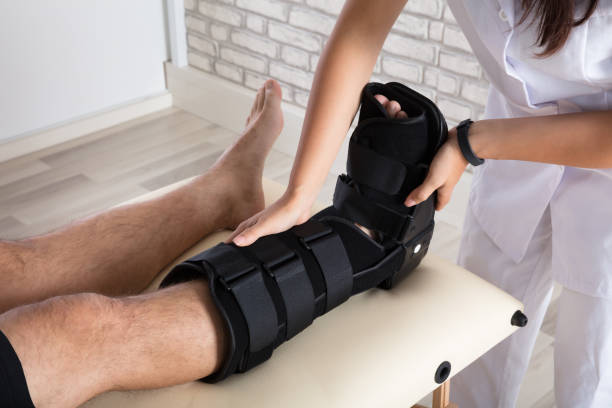Podiatry Or Orthotics? Whats the Difference?

Getting your feet evaluated by a podiatrist may be a good idea if you have foot pain. A good podiatrist has a full arsenal of tools and treatments available for your feet. In addition to recommending orthotics, your podiatrist may prescribe physical therapy or nail splitters to remove ingrown toenails. He may also use liquid nitrogen to freeze plantar warts.
Orthotics are specialized shoe inserts that help relieve foot pain. They can also reduce pain in the knees and lower back. They can also help prevent future problems. They are especially beneficial for older adults with arthritis. They are also effective for treating children with foot deformities.
Orthotics are custom-made to fit your feet. Your podiatrist can use a plaster mold of your foot to create the orthotics. In many cases, custom orthotics are much less expensive than store-bought orthotics. A good podiatrist will never recommend custom orthotics without doing a complete biomechanical evaluation of your feet.
In some cases, your podiatrist may recommend store-bought orthotics. These orthotics are made for average-sized feet and do not work for everyone. People who have high arch, flat feet, Achilles tendon pain, or heel pain are at risk for these premade orthotics. They may also be uncomfortable and do not provide the control and structure that custom orthotics offer.
In most cases, orthotics Midland are best, since they are tailored to your specific feet. In addition, custom orthotics are designed to control overpronation, realign your ankles, and create an optimal weight distribution. They can also be helpful in treating painful calluses and foot ulcers. They are also effective in treating plantar fasciitis and severe heel pain.
There are three different types of orthotics. These include soft orthotics, semi-rigid orthotics, and rigid orthotics. They vary in features, materials, and prices. Soft orthotics can be made to fit a variety of foot shapes, and they often provide extra cushioning. They are also more comfortable. However, they squeak and may not fit into some footwear. They may also crack if they are subjected to heavy force.
The best way to decide whether you need orthotics is to schedule an appointment with a podiatrist. A good podiatrist will perform a complete biomechanics evaluation of your feet, and will discuss with you the types of orthotics that are best for you. Then, he will help you choose the best shoes for your orthotics.
Whether you need custom orthotics or store-bought ones, your podiatrist will recommend the best treatment for your specific foot condition. He or she may also recommend physical therapy, nail splitters, and syringes to treat inflammation and pain. The right orthotics can help you avoid pain in your foot, knee, back, and neck.
The foot is a complex body part. Your podiatrist has more training in the feet than most other medical professionals. He or she is also extremely well-trained in biomechanics.
